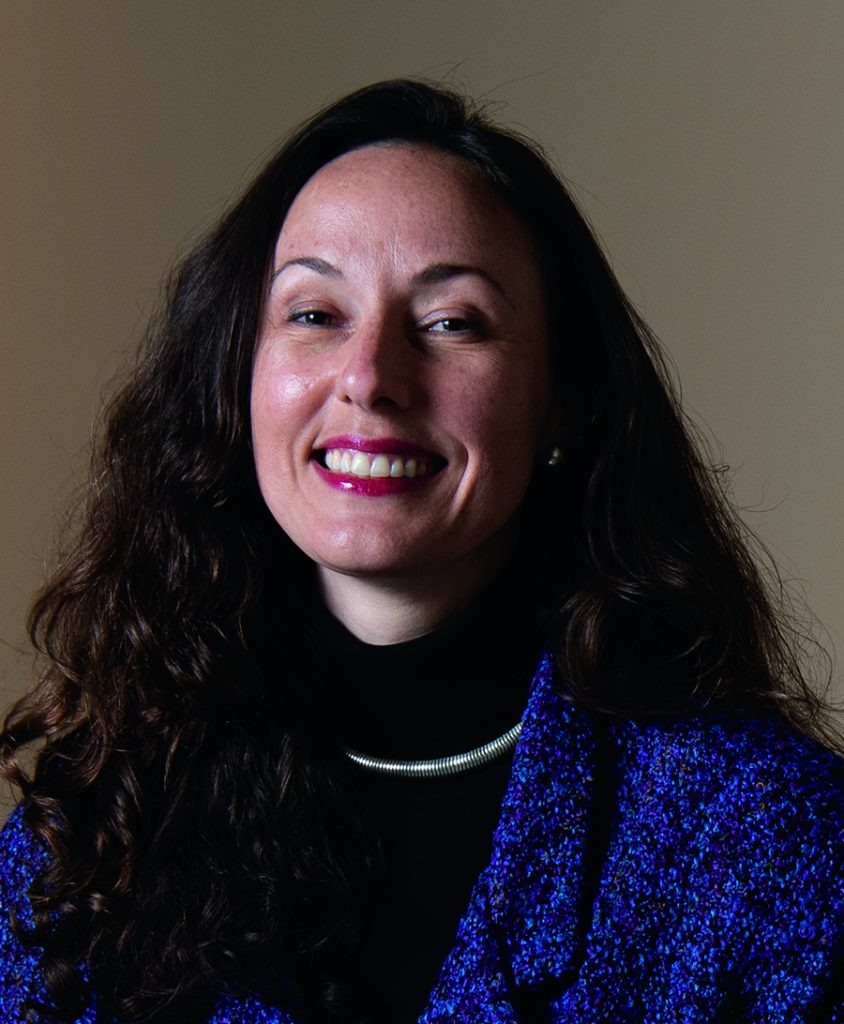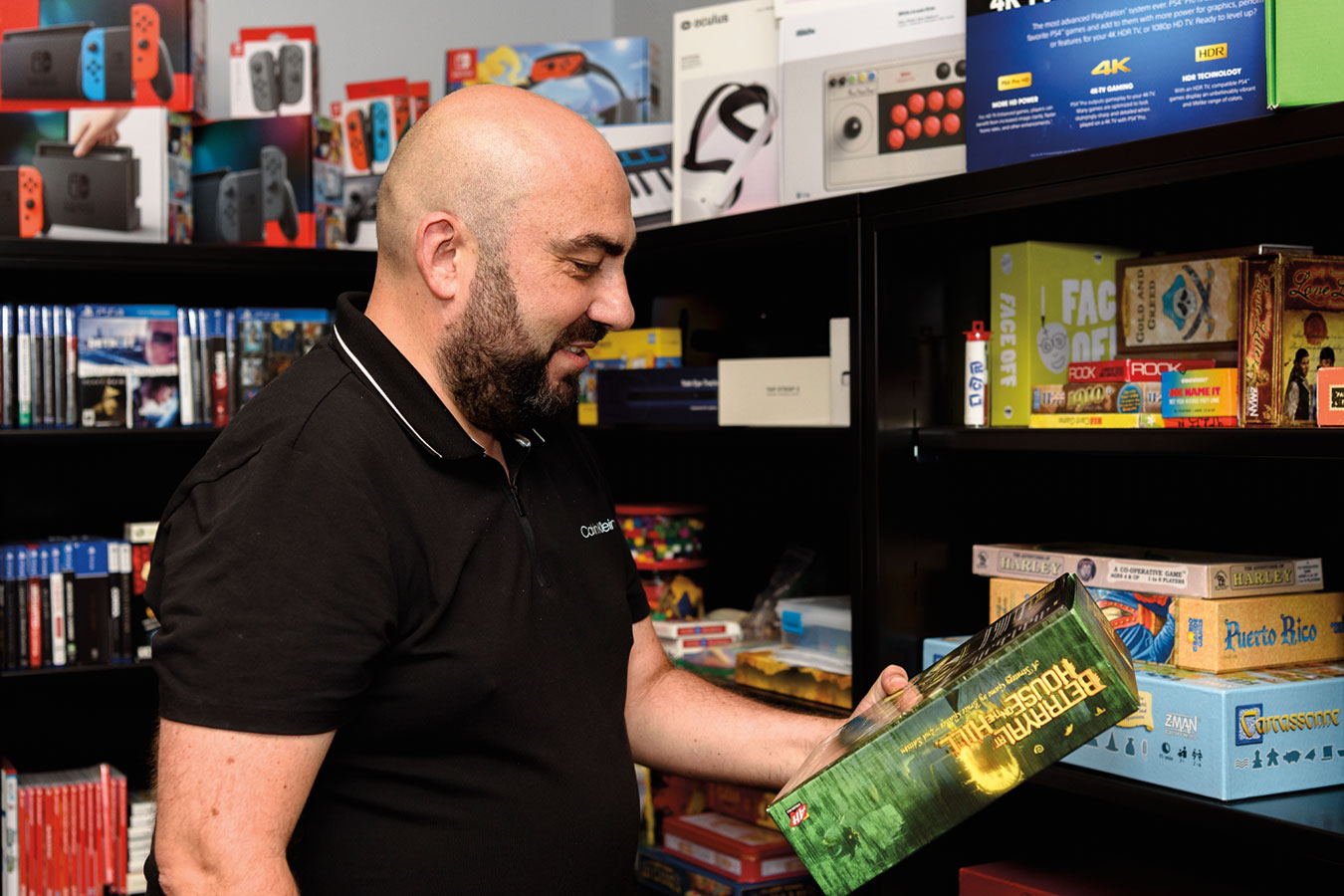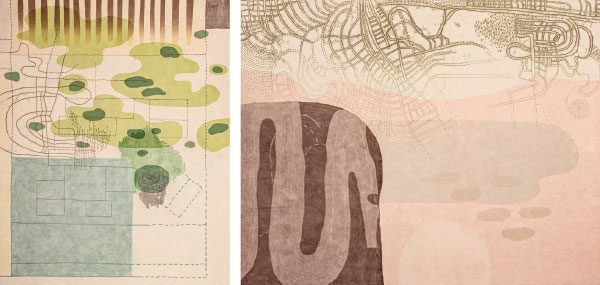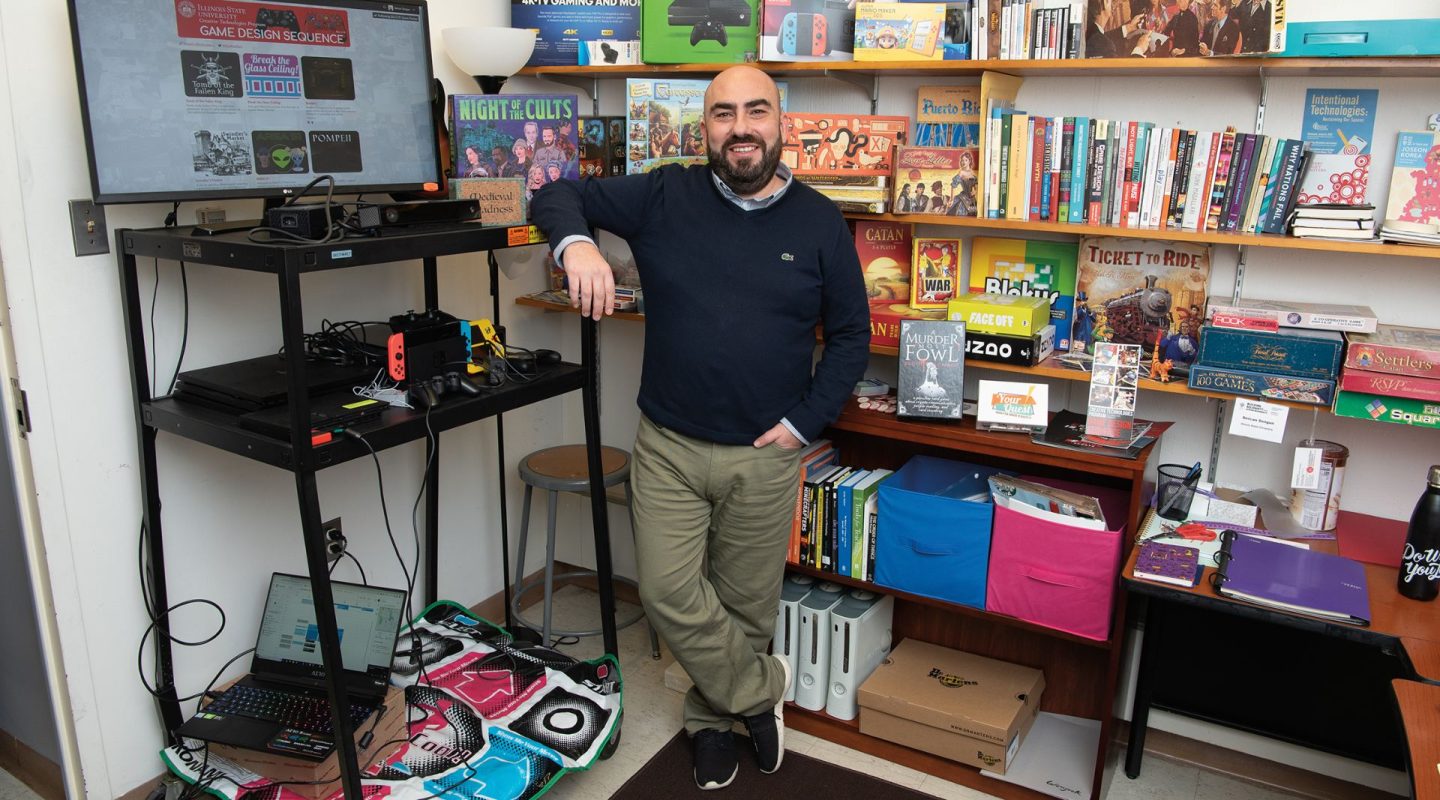Researchers at Illinois State University have been elevating video games to a whole new—academic—level.
Dr. Sercan Şengün is building a first-of-its-kind, searchable video game database for educators.
“As someone who works in the field of games,” Şengün said, “I constantly get approached by teachers who ask me, ‘Can I use games in my field? I am teaching history—can I use games in history? Or, we are talking about immigration in my class—are there games about that? I want to engage my students more, and I know that they like games.’”
Appears InWith more than 10,000 computer games of varying topics, themes, and designs released each year, the options are overwhelming. But by establishing an online database called “Using.Games,” Şengün is aiming to make video games more accessible for educators who are teaching about and researching the humanities, social sciences, and the arts.
“Right now, games are on one side, and most educators are on the other side,” Şengün said. “Through this database, we want to build a bridge between them. We are looking at what games exist that you can bring into a class and use.”
Şengün earned funding for his project while an assistant professor of Creative Technologies and the recipient of the Ken Holder Endowed Professorship. Last spring, he collaborated with Creative Technologies graduate student Rochele Gloor, M.S. ’23, who graduated in May, to begin collecting and implementing pilot data for a beta version of the online database.

“It has been a great opportunity to work on this project since it aligns with my personal motivations to use digital media to inspire people to think about mental health, identity, diversity, inclusion, and climate change.”
Rochele Gloor, M.S. ’23
Researching games
Gloor, a digital artist “with great respect for game art and the gaming community,” spent the spring semester immersed in the world of gaming.
“Finding games to be integrated into the database has not been an easy task,” Gloor said. “The educational purpose of the games is not openly available, so I have been using different sources and platforms to find and verify the information.”
Reddit discussion boards, Wikipedia searches, gaming websites, and Şengün’s expertise all informed Gloor’s search. And the challenge she faced identifying games for the database validated its need. As she found applicable games, she recorded information about each one in an ever-expanding spreadsheet.
Throughout her research, Gloor said she discovered dozens of impactful games: Walden, a Game, a first-person simulation of American philosopher Henry David Thoreau’s self-reliant life at Walden Pond; Papo & Yo, a fantasy adventure game in which a young Brazilian boy befriends a monster who is addicted to eating poisonous frogs—a direct representation of the boy’s (and the game creator’s) abusive, alcoholic father; and Never Alone (Kisima Ingitchuna), a puzzle-platform adventure game developed in collaboration with the Iñupiat, an Indigenous people of Alaska, that draws from a traditional story and touches on the implications of climate change.
“It has been a great opportunity to work on this project since it aligns with my personal motivations to use digital media to inspire people to think about mental health, identity, diversity, inclusion, and climate change,” Gloor said. “I am proud to be part of Using.Games at the beta stage, and I hope that I can provide a strong foundation for future development.”
Creating the website
While collaborating with Gloor to collect a pilot dataset, Şengün was simultaneously building the Using.Games website infrastructure. He received database-creation advice from Milner Library experts, and he strategized aesthetics with Wonsook Kim School of Art colleagues.
When users arrive at Using.Games, they will find a prominently placed keyword search box.
“It’ll be a database that bridges games with keyword-interests from the social sciences, humanities, and education,” Şengün said. A high school teacher or college professor might type “history,” for example. Or they could go more granular with their search phrase, such as “France in the 18th century.”
“There are now all of these representations of historical places from the real world in games,” Şengün said. Assassin’s Creed Unity, for example, is set in Paris during the French Revolution and features historically accurate recreations of iconic landmarks for players to explore, including an elaborate depiction of Notre-Dame Cathedral.

“We don’t have to see games as the enemy. Teachers can actually use games and, through the database, see the ways that they have been used by others,” said Dr. Sercan Şengün.
“Recent iterations of Assassin’s Creed games have a ‘tourist mode’ where you don’t have to go around and fight enemies,” Şengün said. “You can just walk around and look at architecture, because Assassin’s Creed is famous for its historically rebuilt cities.”
Database users can also search for characters who embody specific identities.
“You can say, ‘Is there a coming of age, queer character of American heritage in the 19th century? Is there a story like that?’” Şengün said. “And you will find that, yes, there’s a game where a character like that exists.”
Additionally, the database will include case studies submitted by educators from across the globe who have already incorporated games into their curriculum.
“Most games are created for entertainment—not for education,” Şengün said. “So, educators take these games and use them in a specific way so their students can have an interesting experience related to what they’re learning.”
Once Using.Games launches, Şengün said users will be encouraged to provide feedback and submit their own game recommendations and case studies.
An emerging educational tool
As technology continues to transform modern classrooms—from interactive smartboards to computer tablets used by students—Şengün said it is important for educators to think of games as another valuable digital asset.
“I think we’ve moved into a space where the instructor can supplement their lessons with games,” Şengün said. “If the class is learning about Japan, for example, the instructor can assign readings about Japan, and they can also have their students play games that engage them in Japanese culture and history.”
Şengün said a decade ago, educators with whom he interacted were often critical of games because they were considered a distraction to their students.
“They would say, ‘We can’t separate kids from games. They play games all the time. They won’t do our assignments. They just play,’” Şengün said. “It’s important that the current community of educators understand the way that games can be used.”
Now, Şengün said educators are recognizing the power of games as an educational tool.
“We don’t have to see games as the enemy,” Şengün said. “Teachers can actually use games and, through the database, see the ways that they have been used by others.”
Expanding game research
The Using.Games database will not only be utilized by educators, but also by scholars. Şengün, who studies representation in games, said the most time-consuming aspect of his research is identifying games to analyze.
“As researchers, our first step is to collect the body of games,” Şengün said. “We are looking at representation of gender, race, and culture in games, and our first step is ‘How do we find these games? How do we create a list that is comprehensive?’ That is the hardest part.”
Şengün said he expects Using.Games to be widely utilized by the expanding game studies community—including scholars and students at Illinois State University, where 60-80 freshmen are being admitted to the Creative Technologies game design sequence each year.
“As this database is launched,” Şengün said, “we are designing it so the community can contribute, and it can continue to grow.”
Endowed professorships inspire creative work
Along with the Ken Holder Endowed Professorship of Art, the Wonsook Kim College of Fine Arts awarded two additional endowed professorships this year. Dr. Saskia Beranek, assistant professor of art history, is the Harold Gregor Endowed Professor of Art, and Sarah Smelser, professor of printmaking, is the Harold Boyd Endowed Professor of Art.
Beranek is completing a scholarly monograph that examines how portraits of Amalia van Solms, Princess of Orange (1602-1675), were created and displayed during her lifetime. An important but often overlooked historical figure, van Solms’ celebrity status manifested in portraits that were often displayed by people from across the religious and socioeconomic spectrum. In her book, Beranek explores how van Solms used and manipulated portraits to “navigate the rocky waters of the 17th century,” while also considering the concepts of identity more broadly.

Sarah Smelser, the Harold Boyd Endowed Professor of Art, created a body of images representing her experience winding through the University of California, Santa Cruz campus.
Smelser participated in two weeklong residencies in Albuquerque, New Mexico, and Milwaukee last fall, before spending six weeks as a research associate at the Contemporary Print Media Research Center at her undergraduate alma mater, the University of California, Santa Cruz. As an artist, Smelser uses walking as an entry point into the imagery she creates. While she walks through varying terrain, Smelser builds a “visual lexicon of objects.” During her time in Santa Cruz, Smelser embarked on a self-guided walking tour across the community’s golden hills and dusty footpaths. “The resulting body of images reflects my thoughts and ruminations as each morning’s march up and evening stroll down revealed different observations, equal parts new and familiar,” Smelser said. The endowed professorships are part of the $12 million historic gift from alumna Wonsook Kim ’75, M.A. ’76, M.F.A. ’78, honorary doctorate of arts ’19, and her husband, Thomas Clement, that was announced in September 2019.

